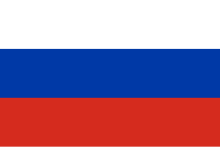
Tatyana Romanovna Lebedeva is a Russian track and field athlete who competes in both the long jump and triple jump events. She is one of the most successful athletes in the disciplines, having won gold medals at Olympic, world and European levels. She has a long jump best of 7.33 m and held the then indoor world record mark of 15.36 m in the triple jump. In 2017 she was banned for doping.
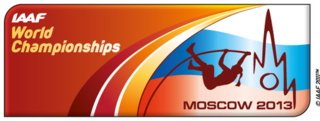
The 14th IAAF World Championships in Athletics was an international athletics competition held in Moscow, Russia, from 10 to 18 August 2013. Initially, Russia won the most gold medals to top the table for the first time since 2001. It was also the first time ever the host nation took the top of the medal table. However, following the disqualification of Russian sprinter Antonina Krivoshapka for doping and after the redistribution of medals in the Women's 4 × 400 metres relay, the United States moved to the top of the medal table with eight golds. In the overall medal count, the United States won 26 medals in total, followed by Kenya with 12. With 1,784 athletes from 203 countries it was the biggest single sports event of the year. The number of spectators for the evening sessions was 268,548 surpassing Daegu 2011.

Darya Igorevna Klishina is a Russian long jumper.

Mariya Aleksandrovna Lasitskene is a Russian athlete who specialises in the high jump. She is the 2020 Olympic champion and three-time world champion. With her victory in Tokyo, Lasitskene became the fourth female high jumper in history to win gold at both the Olympic Games and the World Championships.
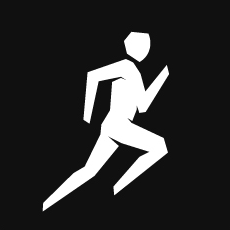
The athletics competitions at the 2012 Olympic Games in London were held during the last 10 days of the Games, on 3–12 August. Track and field events took place at the Olympic Stadium in east London. The road events, however, started and finished on The Mall in central London.

The 2017 IAAF World Championships, the sixteenth edition of the IAAF World Championships, were held from 4 to 13 August at London Stadium in London, United Kingdom. London was officially awarded the championships on 11 November 2011.

Athletics at the 2016 Summer Olympics were held during the last 10 days of the games, from 12 to 21 August 2016, at the Olympic Stadium. The sport of athletics at the 2016 Summer Olympics was made into three distinct sets of events: track and field events, road running events, and racewalking events.
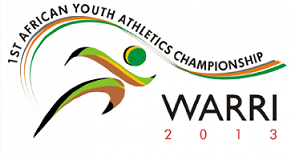
The 2013 African Youth Athletics Championships were the first edition of the biennial athletics competition for African athletes aged fifteen to seventeen. It was held in Warri, Nigeria, on 28–31 March. A total of 40 events were originally scheduled but only 36 went ahead, 17 for boys and 19 for girls.

The 2019 IAAF World Athletics Championships was the seventeenth edition of the biennial, global athletics competition organised by the International Association of Athletics Federations (IAAF), since renamed World Athletics. It was held between 27 September and 6 October 2019 in Doha, Qatar, at the renovated multi-purpose Khalifa International Stadium, but reduced to 21,000 available seats. 1,772 athletes from 206 teams competed in 49 athletics events over the ten-day competition, comprising 24 events each for men and women, plus a mixed relay. There were 43 track and field events, 4 racewalking events, and 2 marathon road running events. The racewalking and marathon events were held in Doha Corniche.

The 800 metres at the World Championships in Athletics has been contested by both men and women since the inaugural edition in 1983. It is the second most prestigious title in the discipline after the 800 metres at the Olympics. The competition format typically has two qualifying rounds leading to a final between eight athletes.

The 1500 metres at the World Championships in Athletics has been contested by both men and women since the inaugural edition in 1983. It is the second most prestigious title in the discipline after the 1500 metres at the Olympics. The competition format typically has two qualifying rounds leading to a final between twelve athletes. It is one of two middle-distance running events on the programme, alongside the World Championship 800 metres.

The 10,000 metres at the World Championships in Athletics has been contested by men since the inaugural edition in 1983 and by women since the subsequent edition in 1987. It is the second most prestigious title in the discipline after the 10,000 metres at the Olympics. The competition format is a straight final with typically between twenty and thirty participants. Before 1999, the event had two qualifying heats leading to a final.
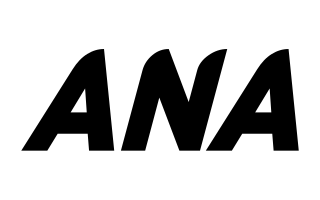
Authorised Neutral Athlete (ANA) is a capacity under which athletes can compete at international sporting competitions without representing their nations, as is standard convention under the Olympic Charter. As of August 2022, only Russian and Belarusian athletes of some sports have competed or are competing within the ANA capacity.

Danil Sergeyevich Lysenko is a Russian track and field athlete who specialises in the high jump. He won the silver medal at the 2017 World Championships. He is currently banned from the sport for doping violations and fraud.
Systematic doping of Russian athletes has resulted in 48 Olympic medals stripped from Russia, four times the number of the next highest, and more than 30% of the global total. Russia has the most competitors who have been caught doping at the Olympic Games in the world, with more than 150.

The United States has competed at every edition of the World Athletics Championships since its inception in 1983. It has been the most successful nation at the global competition for track and field. By the end of the 2017 World Championships, its athletes had won a total of 385 medals, 168 of them gold – more than double that of the next most successful nation Kenya, as well as more than the combined total of the Soviet Union and post-Soviet states. It has been the top nation in the championships medal table at every edition bar 1983 and 1987, 2001 (Russia) and 2015 (Kenya). It also ranks number one on points in the national placing tables. As one of the foremost nations in the sport internationally, its delegations for the championships are among the largest. It also won the first title of "World Team Champions" inaugurated for the Oregon 2022.

Kenya has competed at every edition of the IAAF World Championships in Athletics since its inception in 1983. It has won the second highest number of gold medals at the championships and also has the second highest medals total.
As a signatory to the World Anti-Doping Code, the International Association of Athletics Federations (IAAF) prohibits the use of banned performance-enhancing substances by competitors at the World Championships in Athletics. A list of WADA-banned substances is regularly published to the public and amended as scientific knowledge expands. The IAAF and anti-doping bodies undertake in-competition sampling of athletes blood and urine in order to detect where athletes have taken banned substances. This is also complemented by out-of-competition tests during the tournament and in the preceding period.

Klavdiya Afanasyeva is a Russian racewalker. She won gold medals in the European U20 and U23 championships in the 10,000 m race walk and 20 km race walk respectively. Though she has never tested positive for an anti-doping violation, in May 2018 she was suspended from international competition due to participating in a training camp including banned coach Viktor Chegin.

The women's high jump event at the 2020 Summer Olympics took place on 5 and 7 August 2021 at the Japan National Stadium. Even though 32 athletes qualified through the qualification system for the Games, only 31 took part in the competition. This was the 22nd appearance of the event, having appeared at every Olympics since women's athletics was introduced in 1928.
